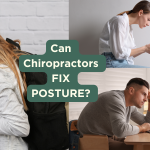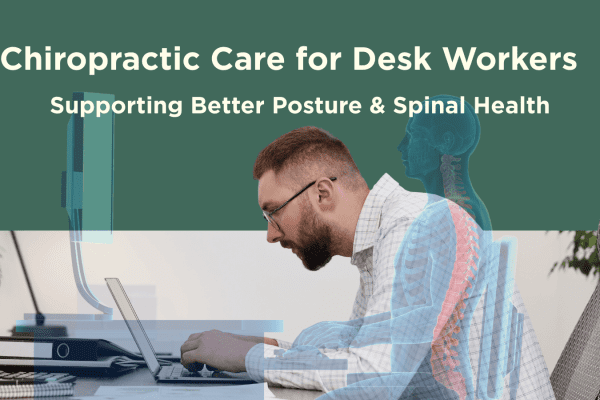Why Posture Matters More Than You Think and How a Chiropractor Can Help
Why Posture Matters More Than You Think and How a Chiropractor Can Help
When people think about posture, they often picture standing up straight or sitting up tall. But posture is much more than how you look. It is about how your spine, muscles, and nervous system work together to support your overall health.
At Wellbeing Chiropractic, we believe that good posture is the foundation for feeling, moving, and functioning at your best. Across our clinics in Melbourne, Brisbane, and Sydney, we regularly help people understand and improve their posture because when posture is poor, it can quietly influence everything from your energy to your pain levels and even your nerve function.
Poor Posture Isn’t Just About Discomfort It’s About Long Term Health
When your posture is out of alignment, especially in your neck or lower back, it places additional stress on the spine and the nervous system.
Research shows that a reduced cervical lordosis (neck curve under 20 degrees) is significantly associated with chronic neck pain, while an ideal clinical range is between 31 and 40 degrees (1). Another study demonstrated that restoring the natural cervical curve can improve central nerve conduction time, showing a neurological benefit even in people without symptoms (2).
This means posture does not just affect your muscles. It affects how your brain communicates with the rest of your body.
Posture and the Nervous System What You Might Not Realise
Think of your spine as a protective case for your nervous system. When your posture changes, such as with forward head carriage or cervical kyphosis, it can begin to compress, stretch, or interfere with the nerves traveling through your spine.
In more severe cases, cervical kyphosis is associated with a higher risk of developing myelopathy, a serious neurological condition that can affect movement and balance (3).
That is why, as chiropractors, we take posture seriously not just to help relieve pain, but to support the health of your spine and nervous system long term.
Everything is Connected From Your Neck to Your Lower Back
Your body is not made up of isolated parts. Posture in one region influences the others. That is why we take a full spine view when assessing posture at Wellbeing Chiropractic.
Multiple studies show that
- Correcting lumbar lordosis (low back curve) can help reduce excessive thoracic kyphosis (mid back rounding) (4)
- The shape of your thoracic spine can affect your pelvis, low back, and even your head positioning (5)
- Chiropractic adjustments and specific postural exercises like the Denneroll orthotic can help improve structural curves and reduce muscle inhibition patterns commonly seen in poor posture (6)
So if you have been feeling stiff in one area, it might be linked to something further up or down the chain.
What You Can Do to Support Better Posture
Posture correction is not about being perfect. It is about building small, sustainable habits and, when needed, getting the right support.
At Wellbeing Chiropractic, we offer
- Comprehensive posture assessments
- Chiropractic adjustments tailored to your needs
- Use of evidence based tools like the Denneroll orthotic, which has shown to improve cervical curvature by an average of 13 degrees over 10 weeks (2)
- Practical advice for daily life including desk setup, sleeping position, and stretch routines
Together, this helps us not just treat pain, but enhance lives through chiropractic care, which is our purpose across every clinic we serve.
References
- Harrison, D. E., Harrison, D. D., Janik, T. J., Cailliet, R., & Holland, B. (2005). Cervical lordosis, cervical pain, and potential clinical goal for treatment. Journal of Manipulative and Physiological Therapeutics, 28(3), 187–193.
- Moustafa, I. M., Diab, A. A., Harrison, D. E., & Harrison, D. D. (2021). Demonstration of central conduction time and neuroplastic changes after cervical lordosis rehabilitation in asymptomatic subjects: A randomized, placebo-controlled trial. Scientific Reports, 11(1), 15716.
- Ishikawa, Y., Kanamori, M., Kawaguchi, Y., Nakamura, H., & Kimura, T. (2002). Cervical kyphosis: Predictive factors for progression of kyphosis and myelopathy. Spine, 27(13), 1419–1425.
💬 Got a Question?
Our team is always happy to help. Whether you’re in pain, feeling off, or just want to check in on your posture we’re here for you.
Come visit us at Wellbeing Chiropractic. We’re passionate about helping people move better, feel better, and live fuller lives through chiropractic care that’s tailored, respectful, and centred around you.
You May Also Like:
Author




